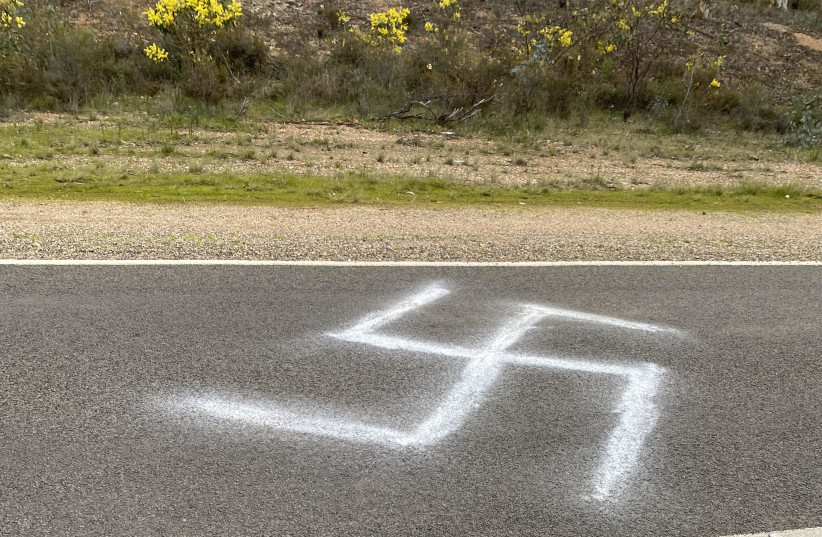These are tough weeks for me, a child of Hungarian Holocaust survivors, as we mark 80 years since half a million of us were murdered in seven weeks. Two linked phenomena serve as background to this anniversary – the Israel-Hamas war, and antisemitism at levels not seen since those times.
Sadly, antisemitism is permanent, like a chronic illness that erupts periodically. Israel, which should lead the effort to combat it, is currently unable: it faces many difficulties, and most of its government seems either unable or unwilling to look beyond local political considerations.
This means that by default, the Diaspora must take a leading role in combating antisemitism. While certain structures and individuals are taking action, I worry that some responses to emergent antisemitism resemble a deer caught in the headlights and frozen with shock.
What can be done? Here, in no particular order, a distressed Israeli shares some thoughts.
First, do we know what is out there, beyond the headlights? Is it completely dark? Israel did not win the political-musical Eurovision Song Contest, as embattled Ukraine did two years ago. But it did well enough to disprove that “all Europeans are Israel-hating antisemites.”

It should be possible to lean on such positive or even on neutral sentiments to build coalitions.
Antisemitism is arguably the oldest known national prejudice, but it is not the only one. Joining with other groups (Roma? Asian immigrants?) who also suffer from discrimination may help address our sense of isolation while also improving the surrounding discourse.
In this context, it must be emphasized: all ethnic generalizations are unacceptable. Whoever says that “Arabs are…,” “Muslims think…,” or “French usually…,” cannot complain if specific qualities are attributed to Jews.
Maybe advocates should be recruited among influential individuals who have previously shown interest or support. They could be active academics, retired politicians, church leaders, artists. Some might decline to lead a campaign against antisemitism at this complicated time, others may agree.
Such partnerships could be taken to a higher and more systematic level. For example, arranging academic seminars on antisemitism, ideally with press coverage. They should target the large, uniformed center, rather than avowed antisemites or “liberal” useful idiots who support Hamas; there is no point in trying to convince them.
Setting up a local forum to combat antisemitism
A local forum to combat antisemitism with a defined agenda, like engaging with educational systems, could be set up. Collaboration with similar groups elsewhere – regional, national, international – might expand targets, say to legislation. Naturally, strong communities would reach out to weaker ones and help them answer their specific needs.
Despite being a critic of Israel’s government, it pains me to hear my leaders lambasted by foreigners. But we must understand that some criticism of Israel is legitimate, and that automatically attributing all to antisemitism, rather than responding to the substance, is both wrong and unhelpful.
Thus, when the United States government decided to sanction settlers for violence against Palestinians, our finance minister responded that “Biden is cooperating with antisemitic lies.” Israel’s foreign minister recently took this approach to the point of absurdity: his reaction to Spain’s recognition of Palestine recalled the Inquisition and forced conversions of Jews, no less.
Finally, experience taught me to spell out basics, which seem obvious to me, but may not be so to others.
I was Israel’s first ambassador to the Baltic countries after the collapse of the Soviet Union, when they began to face their ugly pasts. Many in Latvia, Lithuania, and Estonia, including senior officials, would state that collaboration with the Nazis had been terribly wrong, but their countries had suffered during the first communist occupation (1940-1941), many Jews had been communists, so their actions when Nazis took over were natural.
I adopted a self-righteous “I will not dignify justifying genocide with a response!” but soon realized that they had no idea why I was indignant.
So, I explained. One example: There had been more local Poles than Jews among communist leaders, yet no one shot entire Polish populations into pits. I wrote and spoke, privately and publicly. Soon, that obviously antisemitic statement disappeared from the discourse, at least in my presence.
I believe that drawing effectively on available resources – intellectual, organizational, financial, among others – to counter antisemitism will re-energize Diaspora communities. Given our partnership, this will also provide encouragement and support to Israel at its fragile time of need.
The writer was Israel’s first ambassador to the Baltic states after the disintegration of the Soviet Union, ambassador to South Africa, and congressional liaison officer at the embassy in Washington. She is a graduate of Israel’s National Defense College.
